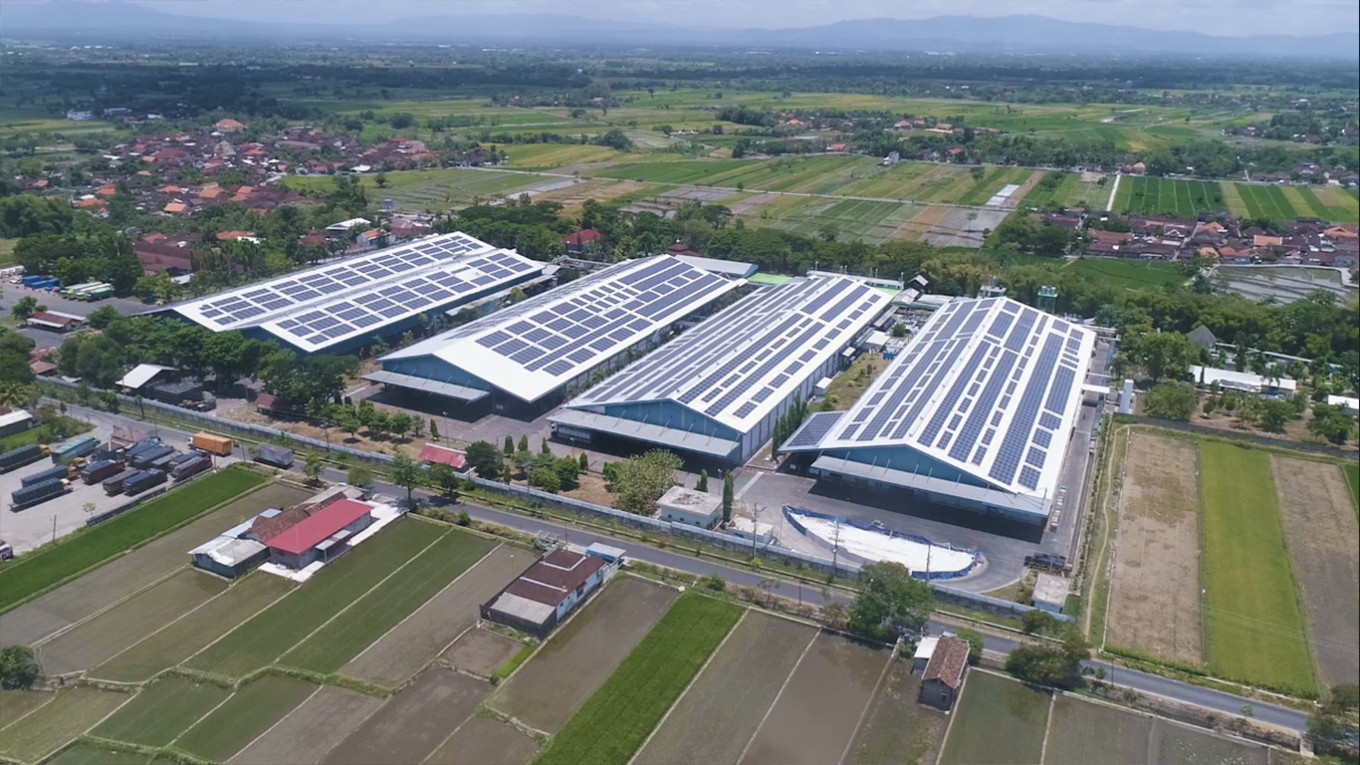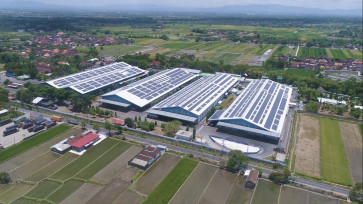Popular Reads
Top Results
Can't find what you're looking for?
View all search resultsPopular Reads
Top Results
Can't find what you're looking for?
View all search resultsRegional governments key to tackling climate change
The governance system is decentralized and requires the participation of the regional governments in the clean energy transition processes.
Change text size
Gift Premium Articles
to Anyone
E
very year people in the country feel the pressure of climate change as floods inundate crops, villages and cities from Papua to Sumatra. Climate change is already under way, causing havoc to humankind and ecosystems around the world.
The Intergovernmental Panel on Climate Change (IPCC) report in 2021 confirms that the risks will increase if the global average surface temperature rises by 2 degrees Celsius, and in particular developing countries like Indonesia will be more vulnerable to the impact of climate change.
According to the IPCC’s fifth assessment report (2014) and Indonesian Maritime Affairs and Fisheries Ministry (2020), climate change and unpredictable weather have resulted in sea level rises that are reducing marine fish catches by 40–60 percent, as well as worsening socioeconomic conditions in around 10,000 coastal villages in Indonesia. In tackling climate change and avoiding tipping points of global climatic disasters, controlling carbon emissions from the global energy system, which is currently heavily reliant on fossil fuels, is critical.
In recent years, energy transition has become an intensive topic of discussion in Indonesia. According to the Indonesian Nationally Determined Contribution (NDC) in 2021, the country aims to cut emissions by 29 percent by 2030 if it relies solely on its own resources to finance decarbonization, or 41 percent with international support.
However, as the world’s largest island country, Indonesia consists of 34 provinces and multilayered governments. The governance system is decentralized and requires the participation of the regional governments in the clean-energy transition processes. Therefore, it is particularly important to support the efforts not only by central government but also regional governments.
Several provinces have made great efforts to transition to renewable energy. One example is the province of Bali, which is proposing the development and use of clean energy beginning in 2020. In 2019, the Bali administration issued two regulations to realize clean-energy supply by 2022: the Bali Clean Energy and the Use of Battery-Based Electric Motorized Vehicles bylaws. As a result, state oil and gas company PT Pertamina is interested in strategic cooperation with the Bali administration to increase the clean-energy mix in the province by developing an electric vehicle ecosystem in tourist areas, constructing solar power plants, and waste power plants.
In addition, the Central Java administration has also committed to accelerating the transition by encouraging all sectors in the province to develop solar rooftops as they declared “Central Java Solar Province” in 2019. The governor also issued a circular letter in 2019 promoting the construction of solar rooftops on all regional institutions and several private companies in Central Java. As a result, the largest solar rooftops in Central Java, of 2,919 kilowatts peak, were installed in 2020 in Klaten regency.



















